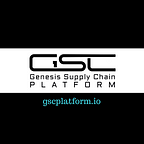Decision-making in the Aviation Industry:
How it was before, and how blockchain changes it.
Air traffic is a growing market. The number of air passengers is growing by 5% every year, and global demand is doubling every 15 years. This solid increase in passenger volume is not the only force behind the dynamism in the aviation business.
Another factor is a related demand for aircraft that are more efficient and more economical to operate. Improving production processes and value chains thus becomes the crucial prerequisite for ensuring profitability and higher delivery rates.
The growth in air travel and the need for more efficient jets is generating demand for a large number of quality jets in this segment. This outlook is very positive for the aviation industry, if each jet entails an average investment of US$137 million, that indicates a corresponding market volume of US$4.1 trillion in payable investment
All this contributes to managing a complex supply chain effectively. Efficient procurement is a critical factor in catering to this demand. A typical aircraft manufacturer today is likely to work with thousands of vendors and a diverse range of partners in multiple industries to procure the technologies, applications, platforms and services required for a modern aircraft.
Sudden shift of demand leads to margin erosion or a compromise on part quality. Significant challenges arise because purchasers do not have the latest tools to change their visibility shortages. In fact, companies often have trouble controlling the flow of supply and information within their tiers, having no choice but to trust their stakeholders — internal and external. Even when using outsourcing as a tool of business, many companies fail when they try to find a way to have reliable visibility across their entire supply chain while limiting dependence on one or more stakeholders.
Buyer-Supplier relationship:
Today a Buyer/Supplier relationship management is critical in such a complex ecosphere.
▪ A good partner (buyer or supplier) can be invaluable when challenging the competition.
▪ It can profoundly develop the growth of the business through effective product pricing.
▪ It can increase the return on investment faster with quality parts at the right prices.
The choice of partner should not be made on the sole criterion of price. If suppliers are chosen only based on their rates purchasers certainly save in the short term, but if parts do not meet specs, losses can mount. There are many factors that should influence selection of the right partner outside of price alone. It is better to take into consideration the price-quality ratio, the quality of the service, its reliability, its speed of execution and other criteria that are all parameters influencing your choice of a “good” partner.
So is there a way to manage these complexities without constantly having to look outside for solutions?
The answer is Blockchain — Blockchain technology has captured the imagination of companies across industries, including airlines. Using robust cryptographic techniques and a distributed messaging protocol, it creates shared ledgers that decentralize reconciliation-based processes. Unlike traditional data technology, blockchain technologies are consistent and durable, shared and mutualized, and protected at the data element level.
So what are the areas in which Blockchain delivers in the aviation industry?
1. Providing a central repository of supplier database management systems on the public ledger
2. Timestamping, tracking and automating transactions and buyer-supplier agreements
3. Introducing smart contracts (electronic agreements that self-execute according to predefined rules) which will ensure compliance and quality adherence
4. Establish proof of quality, provenance, payment and performance to minimize counterfeiting and fraud
5. Provide digital ID tracking of not just parts, but part manufacturing and expiry history, supplier details and much more
But the question remains; who will help integrate these solutions in this industry?
Introducing the Genesis Supply Chain Platform–
Genesis Supply Chain (GSC) Aviation will use Blockchain technology to ensure buyers and sellers related to the aviation supply part industry benefit from a well-organized system which makes their very stressful lives, much more comfortable. GSC creates a blockchain based decentralized platform where buyers and sellers commonly interact helping them to connect with each other. GSC’s decentralized Blockchain platform will help an industry which is waiting for a system like this.
GSC’s interactive search module creates an indexed rating system with top-rated vendors shown first.
GSC creates detailed identity cards which are stored in GSC’s database to allow buyers to access information about each supplier. The procurement department does not need to waste time on trying to find details; instead, they can rely on GSC’s platform.
The database is secure and tamper-proof thanks to the reliability of Blockchain technology. The traceability factor adds to the security guarantee for the buyers who spend heavily on certain aviation parts.
The platform saves time on the countless hours spent in finding information, less capital spent on projects which do not meet deadlines, and fewer accidents thanks to the availability to search for new technologies.
For more information read the white paper or light paper visit https://gscplatform.io or pop into the official telegram channel https://t.me/GSCAviationOfficial to get in touch with the team.
